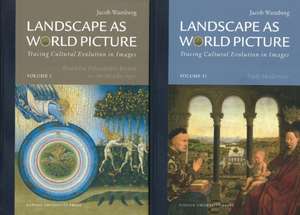Landscape as World Picture: Tracing Cultural Evolution in Images
Autor Jacob Wambergen Limba Engleză Hardback – 31 aug 2009
Preț: 610.18 lei
Preț vechi: 787.96 lei
-23% Nou
Puncte Express: 915
Preț estimativ în valută:
116.77€ • 122.84$ • 97.44£
116.77€ • 122.84$ • 97.44£
Carte indisponibilă temporar
Doresc să fiu notificat când acest titlu va fi disponibil:
Se trimite...
Preluare comenzi: 021 569.72.76
Specificații
ISBN-13: 9788779342873
ISBN-10: 8779342876
Pagini: 1125
Ilustrații: colour & b/w illus
Dimensiuni: 185 x 88 x 260 mm
Greutate: 3 kg
Editura: AARHUS UNIV PR
Locul publicării:Denmark
ISBN-10: 8779342876
Pagini: 1125
Ilustrații: colour & b/w illus
Dimensiuni: 185 x 88 x 260 mm
Greutate: 3 kg
Editura: AARHUS UNIV PR
Locul publicării:Denmark
